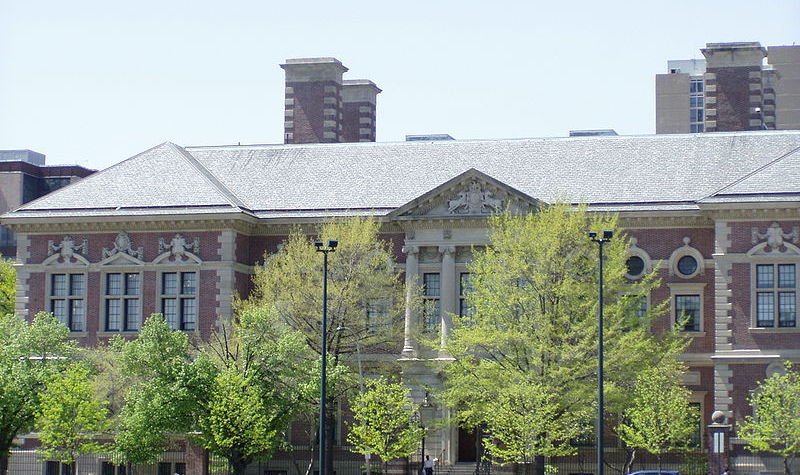Fashioning a Top Career

Richard Ben-Veniste; Photo
courtesy of Richard Ben-Veniste
When former Watergate prosecutor Richard Ben-Veniste recounts a pivotal victory—the moment when a lawyer in President Richard Nixon’s White House agreed to turn over incriminating tapes—he shares an odd detail: The lawyer was “unaccountably got-up in a lime-green shirt with a brown suit,” he writes in his memoir, The Emperor’s New Clothes: Exposing the Truth from Watergate to 9/11.
His eye for fashion is apparent when you meet the impeccably dressed Ben-Veniste, whose father worked as a salesman in Manhattan’s Garment District. He also has a mischievous streak, displayed during his college years when he fabricated an early career for his mother, Sylvia, as a roller derby queen—a description that found its way into a newspaper profile of him during the Watergate scandal.
That side of his personality may become more apparent if the 66-year-old partner at Mayer Brown in Washington, D.C., finds time to complete the half-finished novel in his drawer. “I enjoy some of the more absurd things in life, and you can be freer with that in fiction,” he says.
He accumulated plenty of grist for gripping narratives during a career that includes such high-profile roles as counsel to U.S. Senate Democrats during the Whitewater hearings and 9/11 Commission member.
Nixon helped advance Ben-Veniste’s career more than once. Fresh from postgraduate legal studies in 1968, Ben-Veniste landed his dream job working as assistant U.S. attorney for Robert Morgenthau’s office in the Southern District of New York, where young attorneys were given as much responsibility as they could handle. Before long he found himself assisting an investigation of influence peddling inside the office of U.S. House Speaker John W. McCormack.
After his election as president in 1968, Nixon forced Morgenthau’s resignation. Many of the senior AUSAs quit, leaving Ben-Veniste, at age 26, the only remaining attorney on the important probe. He subsequently was tapped by Morgenthau’s replacement, Whitney North Seymour Jr., to help try the high-profile case against McCormack’s chief aide, Martin Sweig.
Ben-Veniste looks back on those years as the most important in his career. “Being mentored by people who went on to become leaders in their profession, shown by example not only the tradecraft but the proper limitations of prosecutorial power, was very important,” he says.
The job cemented his reputation as a tough, fast-rising trial attorney. He was only 30 when he was summoned to Washington to be interviewed by Watergate Special Prosecutor Archibald Cox Jr., who hired him on the spot (despite the fact, he recalls now with chagrin, that he wore a wide paisley tie).
Trial law drew his interest from the start at Columbia Law School, then at a postgraduate program on a Ford Fellowship at Northwestern University School of Law.
“The action, the focus, the ability to think on your feet, ask questions and listen, were consistent with whatever natural talent I had,” he says. “To me that was the be-all and end-all of practice. Of course, until you stand in front of a jury you don’t really know if you can do it.
It turned out I was a fish in water.”
Summer jobs from the age of 12—busing tables, parking cars, pushing a hand truck in the garment center, delivering beer and laundry, working in offices—were also important. “I’ve had all kinds of experiences and come into contact with working people, which informed my ability to relate to them when they reappeared in a courtroom on a jury as 12 strangers.”
Instincts learned from his mother, a sense of fairness, knowing the importance of standing up to bullies and an affinity for the underdog also shaped his career.
PYRRHIC VICTORY?
The week after Nixon fired Cox, Charles Alan Wright—the green-shirted lawyer—rose in court to announce that the president would comply with an appellate decision ordering him to turn over White House tapes to a federal grand jury.
“We had won! Nixon had capitulated,” Ben-Veniste writes. “But we had lost our leader in the process.
A horrifying thought crossed my mind. What if there was really nothing on the tapes after all, and the whole episode had simply been a plot to get rid of Archie?”
He needn’t have worried. The tapes held plenty of evidence, and Nixon’s actions had once again advanced Ben-Veniste’s career.
Write a letter to the editor, share a story tip or update, or report an error.


